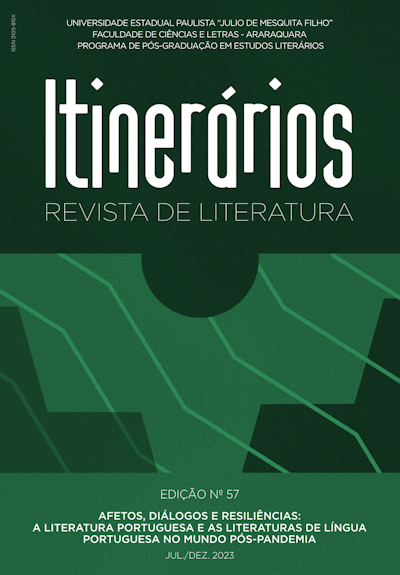Camilo and “O frade que fazia reis”
DOI:
https://doi.org/10.58943/irl.v1i57.18772Keywords:
Camilo Castelo Branco, “O frade que fazia reis”, (Anti)clericalismAbstract
The collection of texts As virtudes antigas ou a freira que fazia chagas e o frade que fazia reis is made up of four narratives, the first two of which, the longest, give rise to the alternative name that appears in the title. The last two texts, respectively “A filha do Pasteleiro de Madrigal” and “Um poeta portugês…rico!”, are smaller and are in an appendix entitled “As virtudes antigas”. Having been published in 1868, the work forms the corpus of the research project “(Anti) clericalismo na obra de Camilo Castelo Branco” (CNPq), which I have been developing with the aim of understanding the form and content of clerical and anti-clerical discourses which are published intermittently in camilian fiction, focusing, in this first stage, on productions from the 1860s. In this work I will pay attention to the second narrative in the collection, “O frade que fazia reis”, in which the camilian narratee tells his version of friar’s story Miguel dos Santos (1537-1538 (?) – 1595), one of several individuals who forged the return of Dom Sebastião (1555-1578), after his disappearance in the Battle of Alcácer Quibir (1578). If in the first part of the story we have the narrator extolling the positive characteristics of the religious, from the moment in which the plans for fraud are revealed, the fierce criticisms of the friar’s behavior become explicit, making the narrative, in my opinion, constitutes an important example to understand the way in which Camilo deals with clericalism and anti-clericalism in this and other of his productions.
Downloads
Published
Issue
Section
License
Os manuscritos aceitos e publicados são de propriedade da revista Itinerários. É vedada a submissão integral ou parcial do manuscrito a qualquer outro periódico. A responsabilidade do conteúdo dos artigos é exclusiva dos autores. É vedada a tradução para outro idioma sem a autorização escrita do Editor ouvida a Comissão Editorial.

